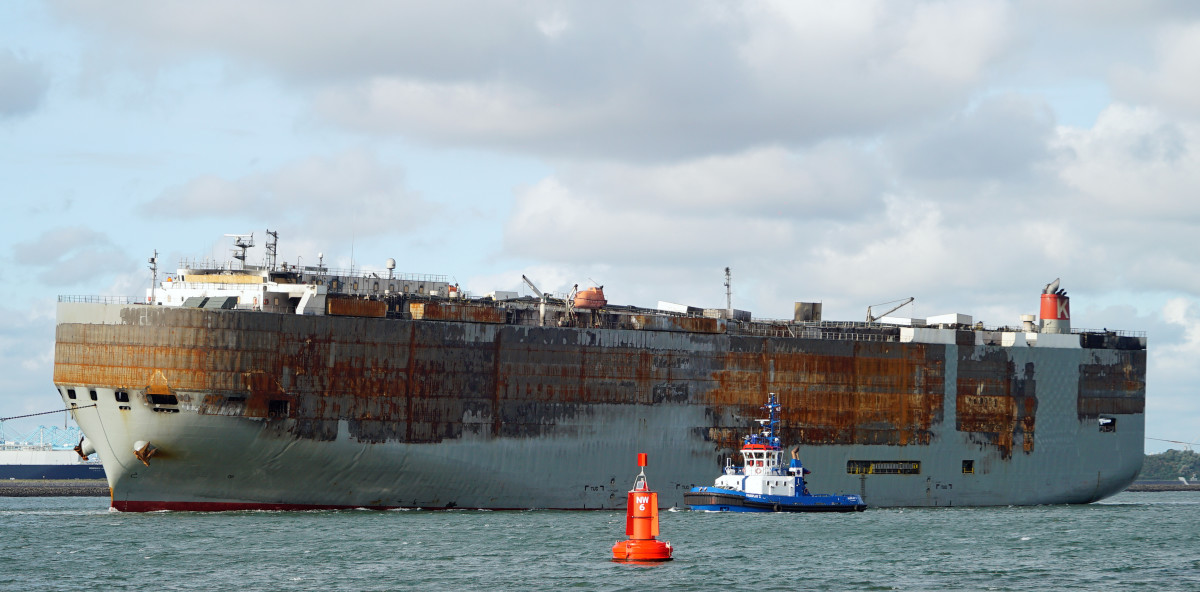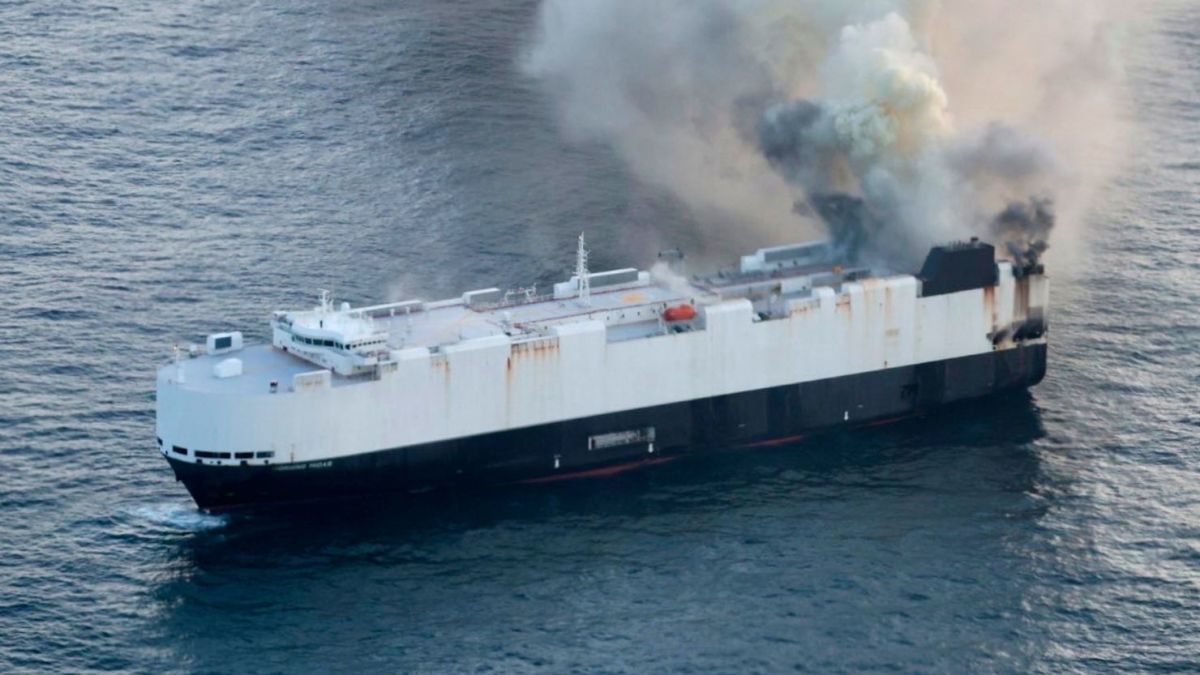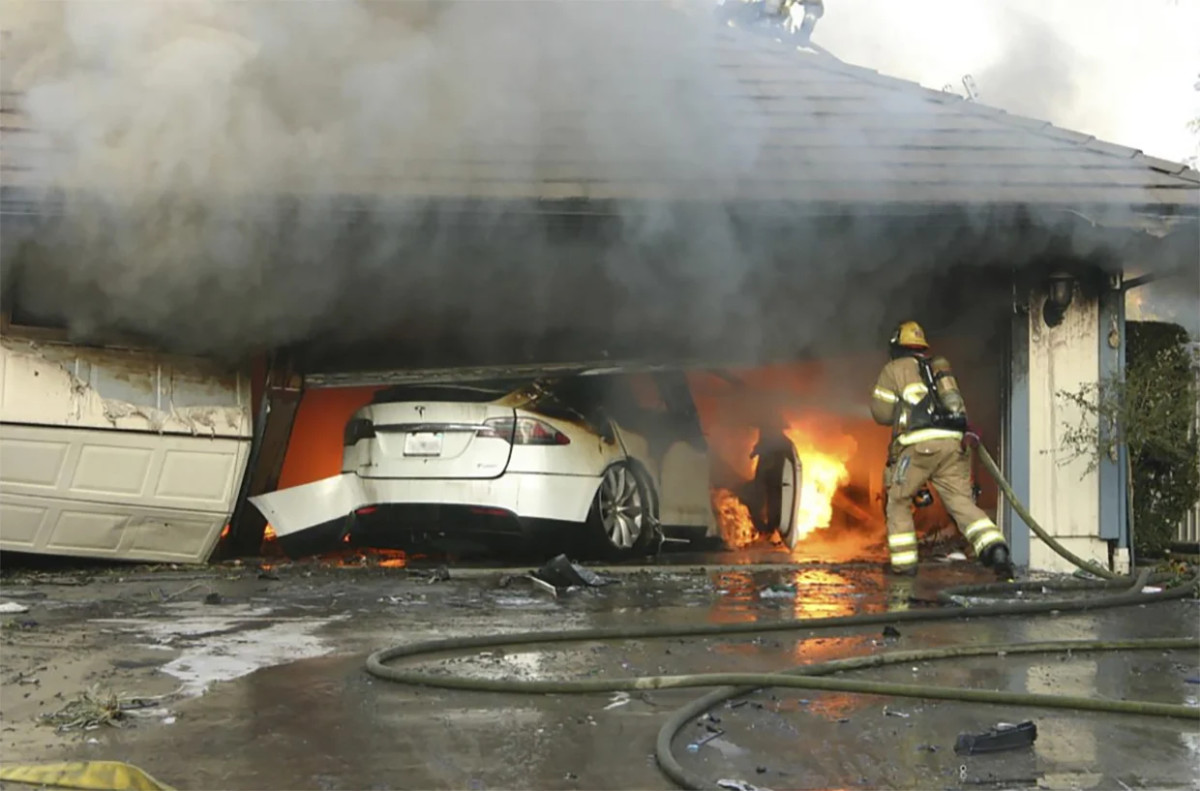Matson, a major U.S.-based cargo shipping company, has announced an immediate and indefinite halt to all shipments of electric vehicles (EVs) and plug-in hybrids (PHEVs) across its entire maritime network, citing rising concerns over fire hazards linked to lithium-ion batteries. The decision affects routes between the U.S. mainland, Hawaii, Guam, and Alaska, creating massive logistical headaches for both automakers and private owners trying to move EVs across the Pacific.
This unprecedented move follows a string of high-profile shipping fires—including the June 2025 loss of the Morning Midas, which sank after a suspected battery-related blaze aboard its vehicle deck. Matson confirmed the decision in internal customer emails, noting the risk of thermal runaway and the challenges of suppressing EV battery fires at sea.

Why EV Fires Are Different
While EVs are statistically no more likely to catch fire than gasoline-powered vehicles, the fires they do produce are significantly more intense and difficult to extinguish. Lithium-ion battery packs are vulnerable to thermal runaway—a chain reaction that can produce extreme heat, reignite after extinguishment, and emit toxic gases. This is what doomed the Fremantle Highway in 2023, where over 3,000 cars, including 500 EVs, were lost to an uncontrollable blaze.
With vehicle decks packed tightly and often unattended mid-journey, a single battery failure can quickly become catastrophic. For shippers like Matson, the margin for error is effectively zero.

Mounting EV Adoption Meets Maritime Reality
The move arrives just as EV adoption in America gains momentum. According to recent CDK Global data, over 607,000 new EVs were sold in the U.S. during the first half of 2025, up 1.5% year-over-year—even amid a wider market dip. Yet despite broader adoption, consumer hesitations around EVs remain. A AAA survey in June revealed many Americans still cite charging infrastructure, range anxiety, and long-term durability as reasons to hold off.
Ironically, repair data shows EVs are generally cheaper to maintain than their combustion counterparts—but they also spend longer in the shop, mainly due to parts shortages and specialist technician requirements.

Battery Tech Advancing…Just Not Fast Enough
Globally, battery technology continues to evolve. In China, a new EV featuring a semi-solid-state battery offering 333 miles of range has entered mass production—marking a potential turning point in range and charging efficiency. But the technology remains too expensive for widespread adoption, and the risk of fires hasn’t been eliminated.
Until new standards emerge or fire suppression tech improves drastically, shipping companies may be forced to limit—or even ban—EV shipments altogether. Matson says it will not resume transport of EVs or PHEVs until “suitable industry-wide carriage and stowage protocols” are developed.
With regulators like the International Maritime Organization now under pressure to act, this story could mark the beginning of a much broader reckoning for how the global supply chain handles electrification.